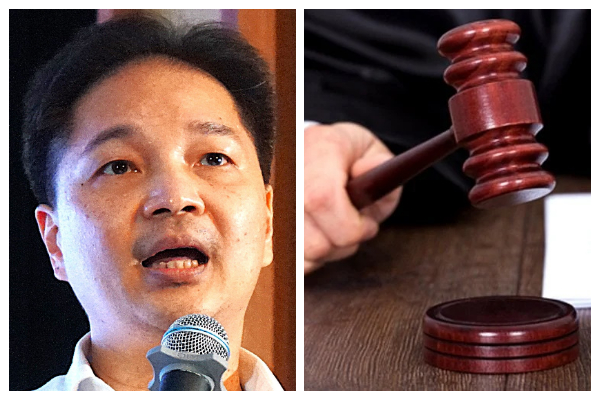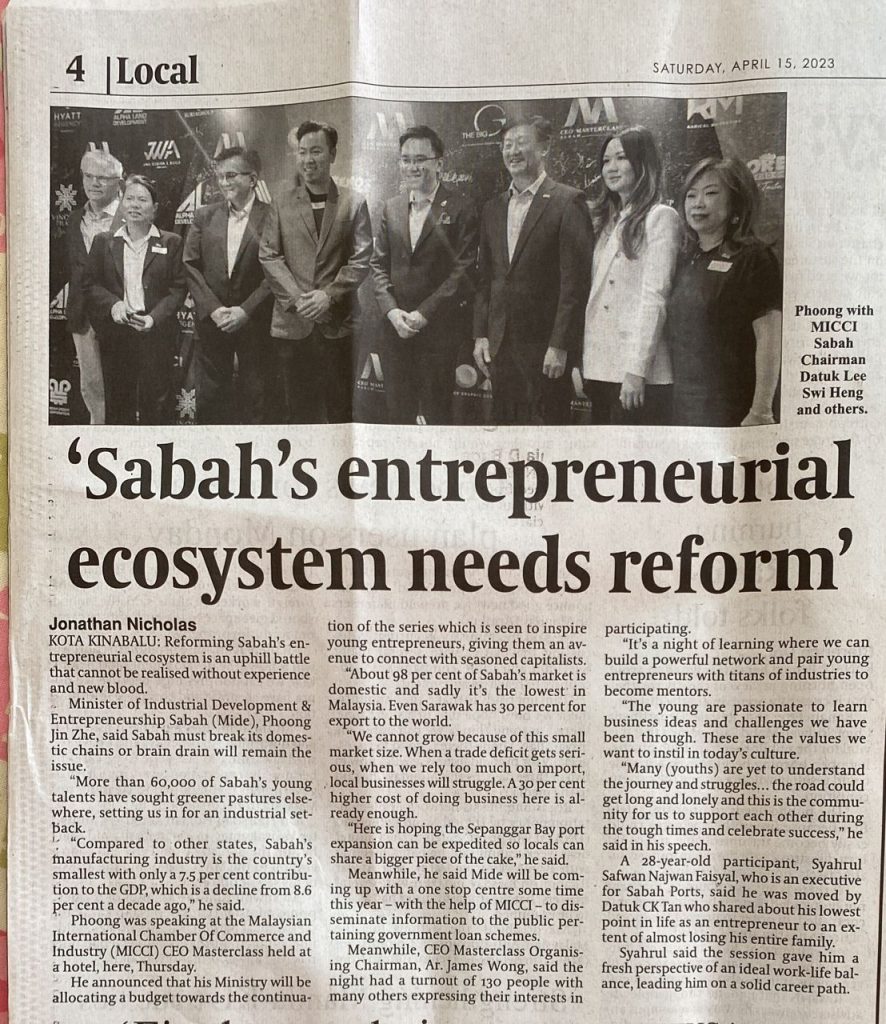Chin said there should be a quota for Sabah and Sarawak judges to reflect the spirit of the Malaysia Agreement (MA63). Out of 32 appellate court judges, one third of them should be Sabah and Sarawak judges.
KUCHING: The fact that not a single Sabahan judge has been appointed to sit in the Court of Appeal and the Federal Court to hear cases did not go unnoticed at the recent Second Borneo States symposium, recently.
Former Sabah Law Society President Datuk Roger Chin who highlighted this said should not be as there are bound to be cases which concern Sabah matters or interests.
“We have Datuk Ravi (Justice Datuk Ravinthran Paramaguru), who has been in Sabah for a very long time and is married to a Sabahan. But in reality, there are zero Sabah judges. Obviously not very fair, he said.
Chin said there should be a quota for Sabah and Sarawak judges to reflect the spirit of the Malaysia Agreement (MA63). Out of 32 appellate court judges, one third of them should be Sabah and Sarawak judges.
And of that one third equally shared between Sabah and Sarawak.
He said this is important because these judges will decide how the relevant laws are interpreted and applied,” said Chin.
Ironically, not too long ago the Chief Justice was Tun Richard Malanjum, a Sabahan, who also introduced many reforms to ensure the judiciary is in step with developments like all Federal Court hearings to be before nine judges.
The IGC recommendation (para 26(4), Ch 3, 1962) states that when an appeal involves the rights of Sabah and Sarawak, the Federal Court panel must have at least one judge from Sabah or Sarawak with Borneo judicial experience but that this has not always been honoured.
It was earlier reported that one of the Appeal court judges hearing the defamation case brought by former Chef Minister Tan Sri Harris Salleh against another CM, Datuk Yong Teck Lee, had even remarked that he knew nothing about the Malaysian Agreement.
“If we do not know what our rights are, they will be diluted,” Chin stressed.
Another area ignored is “Borneonisation” where key positions should be held by locals as they understand Sabah and Sarawak issues and can be counted on to act in the best interests of the two States.
The Second Borneo States Symposium was organised by ‘The Sarawak Initiatives’ (TSI) and ‘Sabah Action Body Advocating Rights’ (Sabar).
There were currently three Sarawakians in the Federal Court, comprising Court of Appeal President Tan Sri Abang Iskandar Abang Hashim, Chief Judge of Sabah and Sarawak Tan Sri Abdul Rahman Sebli and Federal Court judge Datuk Rhodzariah Bujang.
Prior to 1994 it was the law that Judicial Commissioners in the High Court for Sabah and Sarawak shall be appointed by the Yang di-Pertua Negeri on the advice of the Chief Justice of Sabah and Sarawak.
However, Article 122AB was amended in 1994 to transfer this power to the Yang di-Pertuan Agong on the advice of the Prime Minister after consulting the Chief Justice of the Federal Court, which the judicial fraternity is unhappy about vis-a-vis the MA63.
Chin said the Malaysia Agreement 1963 (MA63) was only possible because of the promises made when Sabah and Sarawak were wooed to join in forming Malaysia.
“We all know when we are dating, we make a lot of promises. When you marry, those promises must be kept.
“In essence, it was to ensure that Sabah and Sarawak kept its own identity, as separate areas that formed Malaysia with their own rights to a certain degree,” Chin quipped.
Source:- Daily Express




